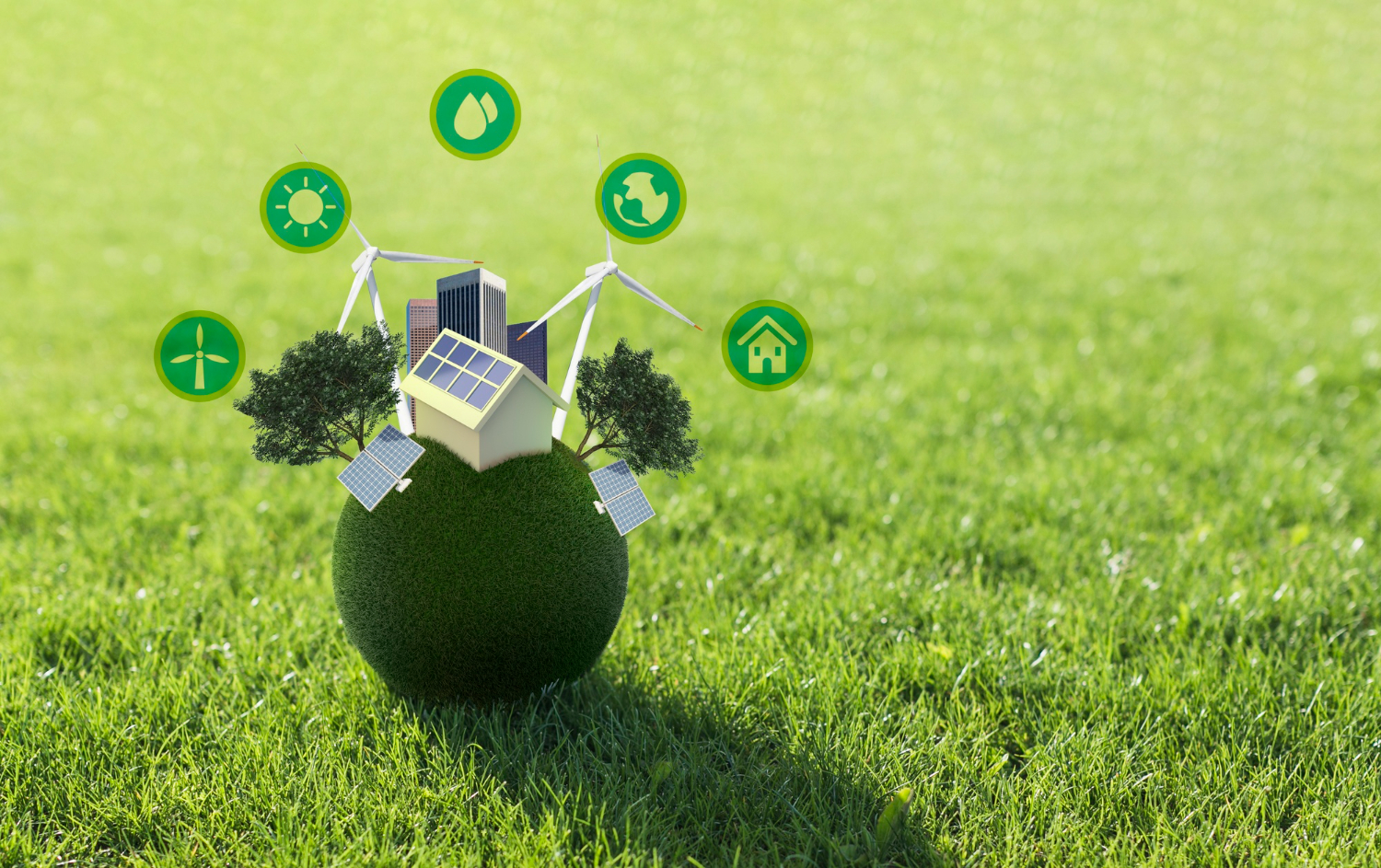
In recent years, the global shift towards sustainable living has gained momentum. In South Africa, however, energy and water shortages have pushed this trend into sudden overdrive. According to David Jacobs,Rawson Properties Regional Sales Manager, more and more homeowners, real estate investors, and developers are recognising the importance of incorporating sustainable features into residential properties. By doing so, they are not only enhancing their property values, but also achieving significant reductions in long-term homeownership costs – all while contributing to the conservation of South Africa’s unique and diverse environment.
Alternative Energy Sources
One of the most significant trends shaping sustainable building in South Africa is the integration of alternative energy sources. With abundant sunlight, solar energy has become the most popular choice for homeowners looking to reduce their reliance on the traditional power grid and free themselves from ongoing loadshedding. “Homes with established solar systems are also highly sought-after, providing an invaluable edge for sellers looking to stand out in today’s competitive market,” says Jacobs.
Waterwise Gardens
In a country where water scarcity is a pressing issue, it stands to reason that waterwise gardens are gaining popularity.“Drought-resistant, indigenous landscaping has become very trendy,” says Jacobs. “It not only reduces water consumption, but also needs less maintenance than traditional gardens with equally beautiful results, offering homeowners a combination of economic, environmental and lifestyle benefits.”
Rainwater Harvesting
Rainwater harvesting systems, coupled with greywater reuse, have also become popular with South African homeowners and investors.
“Collecting rainwater and greywater for non-potable uses like irrigation and flushing toilets helps homeowners reduce their reliance on municipal water sources and minimise the impact of water restrictions,” says Jacobs. “This not only reduces a property’s environmental footprint, but also the owner’s monthly utility bills – something cost-conscious property buyers are increasingly aware of.”
uses like irrigation and flushing toilets helps homeowners reduce their reliance on municipal water sources and minimise the impact of water restrictions,” says Jacobs. “This not only reduces a property’s environmental footprint, but also the owner’s monthly utility bills – something cost-conscious property buyers are increasingly aware of.”
Sustainable Building Materials
According to Jacobs, South Africa is currently experiencing a surge in the use of sustainable building materials that prioritize eco-friendliness without compromising structural integrity. “Builders, developers and home renovators are intentionally choosing materials with low environmental impact, like recycled steel, reclaimed wood, and bamboo – all of which are renewable and contribute to a lower carbon footprint,” he says. “We’re also seeing some innovative uses of materials like hempcrete as a sustainable, non-structural concrete alternative – an important step towards reducing our reliance on non-renewable resources like building sand and gravel.”
The benefits of using sustainable building materials extend well beyond the construction phase, typically providing better insulation and temperature regulation than traditional alternatives, with a more contemporary design aesthetic. “A lot of buyers are very conscious of these benefits, actively seeking homes that support a more sustainable lifestyle. That can make all the difference to a sale in the current buyers’ market,” says Jacobs.
Energy-Efficient Appliances and Smart Home Integration
Incorporating energy-efficient fittings and smart home technologies is another trend shaping sustainable living in South African homes. Reabow says LED lighting, energy-efficient HVAC systems, and intelligent home automation have all risen in popularity as demand for energy efficiency has grown. “Buyers are looking for homes with low energy consumption to reduce their utility bills, and also to make solar installations more effective,” he says.
“Smart home integration makes this easier, combining automated lighting and security systems with energy monitoring and management to help homeowners actively optimize their energy usage.” This, Jacobs says, not only elevates a property’s value, but also provides another unique selling point with which to capture potential buyers’ attention.
Conclusion
The adoption of sustainable building practices in South Africa is not just a response to environmental concerns and energy and water shortages. It’s also a strategic move to enhance residential property values. As the real estate landscape evolves, incorporating these sustainable trends not only positions properties as responsible and forward-thinking but also ensures long-term financial benefits for homeowners and investors. “With increased awareness, and a shift towards sustainable living, the fusion of green features with residential properties is set to become the new standard, transforming the real estate market in South Africa for the better,” says Jacobs.